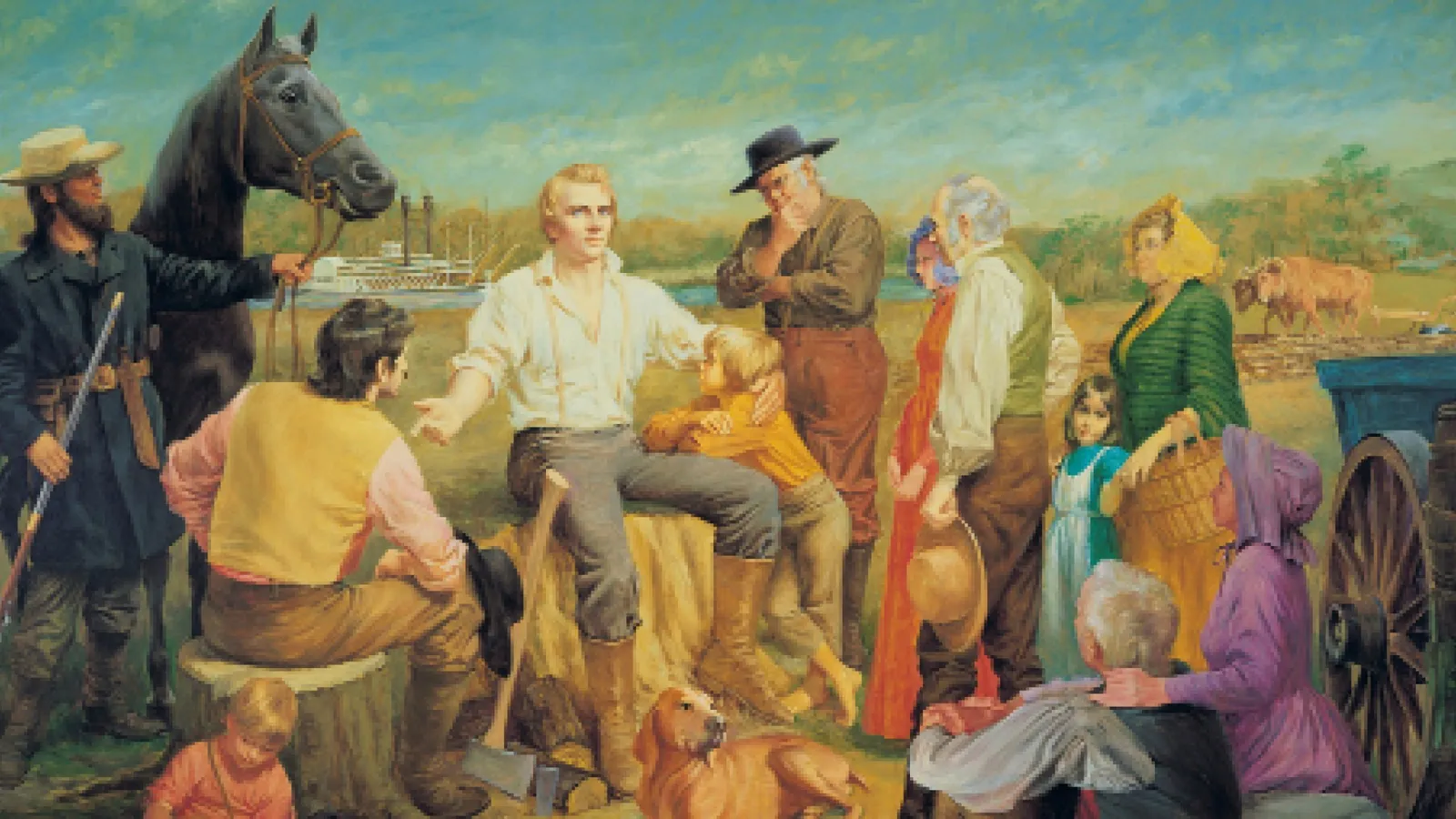Come, Follow Me Doctrine and Covenants
Doctrine and Covenants 129–132
Detail from Joseph Smith in Nauvoo, 1840, by Theodore Gorka

Through Joseph Smith, the Lord took some of the mystery out of eternity. The greatness of God, the glory of heaven, and the vastness of eternity can seem almost familiar in the light of the restored gospel, even to finite minds like ours. The revelations in Doctrine and Covenants 129–32 are a good example. What is God like? He “has a body … as tangible as man’s.” What is heaven like? “That same sociality which exists among us here will exist among us there” (Doctrine and Covenants 130:22, 2). In fact, one of the most joyous truths about heaven is that it can include our cherished family relationships, if sealed by the proper authority. Truths like these can make heaven feel less distant—glorious yet reachable.
But then, sometimes God may ask us to do things that seem uncomfortable and unreachable. For many early Saints, plural marriage was one such commandment. It was a severe trial of faith for Joseph Smith, his wife Emma, and almost everyone who received it. To make it through this trial, they needed more than just favorable feelings about the restored gospel; they needed faith in God that went far deeper than that. The commandment no longer stands today, but the faithful example of people who lived it still does. And this example inspires us when we are asked to make our own “sacrifices in obedience” (Doctrine and Covenants 132:50).
D&C 129: Instructions given by Joseph Smith the Prophet, at Nauvoo, Illinois, February 9, 1843, making known three grand keys by which the correct nature of ministering angels and spirits may be distinguished.
D&C 130: Items of instruction given by Joseph Smith the Prophet, at Ramus, Illinois, April 2, 1843.
D&C 131: Instructions by Joseph Smith the Prophet, given at Ramus, Illinois, May 16 and 17, 1843.
D&C 132: Revelation given through Joseph Smith the Prophet, at Nauvoo, Illinois, recorded July 12, 1843, relating to the new and everlasting covenant, including the eternity of the marriage covenant and the principle of plural marriage. Although the revelation was recorded in 1843, evidence indicates that some of the principles involved in this revelation were known by the Prophet as early as 1831. See Official Declaration 1.
- Study and Teaching Helps: 2025 Doctrine & Covenants, Jonn Claybaugh
- Interpreter Radio Show — October 19, 2025, including Doctrine & Covenants in Context
- Come, Follow Me Study and Teaching Helps — Lesson 46: D&C 129–132 (2021), Jonn Claybaugh
- Audio Roundtable: Come, Follow Me Doctrine and Covenants Lesson 46 (D&C 129–132) (2021)
- Interpreter Radio Show — July 22, 2018, Administration, August 9, 2018
- “The Kingdoms of Glory”: D&C 76; 131; 132:19-24; 137, Taylor Halverson, December 7, 2013
- Scripture Roundtable: D&C Gospel Doctrine Lesson 20, "The Kingdoms of Glory", Administration, June 16, 2017
- Scripture Roundtable: D&C Gospel Doctrine Lesson 31, "Sealed … for Time and for All Eternity", Administration, July 6, 2017
- Scripture Roundtable: D&C Gospel Doctrine Lesson 42, Continuing Revelation to Latter-day Prophets, Administration, October 12, 2013
- Scripture Roundtable: Old Testament Gospel Doctrine Lesson 7, The Abrahamic Covenant, Administration, January 28, 2014
- A Compelling Case for Theosis, John C. Hancock, September 14, 2018
- Hagar in LDS Scripture and Thought, Andrew C. Smith, January 10, 2014
- Joseph Smith and the Doctrine of Sealing, A. Keith Thompson, July 8, 2016
- Much More than a Plural Marriage Revelation, Craig L. Foster, July 20, 2018
- Seers and Stones: The Translation of the Book of Mormon as Divine Visions of an Old-Time Seer, Stan Spencer, March 10, 2017
- The Case of the Missing Commentary, Brian C. Hales, July 20, 2018
- “Thou Art the Fruit of My Loins”: The Interrelated Symbolism and Meanings of the Names Joseph and Ephraim in Ancient Scripture,, Matthew L. Bowen, January 0, 1900


